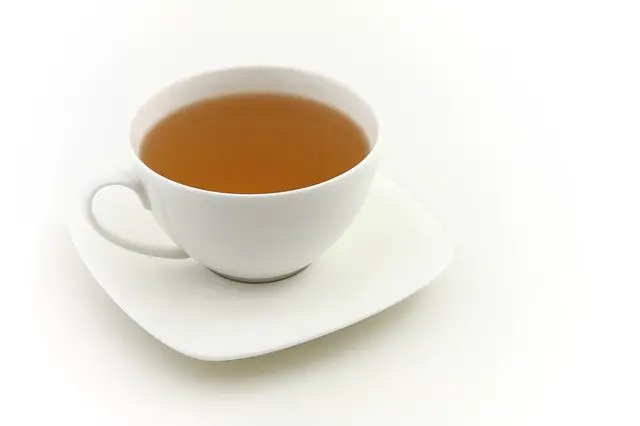
If you were looking into the health benefits of green tea, then it is quite possible that you may have stumbled onto green tea extract.
So, what exactly is this supplement and how does it measure up to the real thing?
Furthermore, are the reported health benefits true?
If so, how can you find the best green tea extract?
Well, there are certainly a lot of questions! Fortunately for you, you can discover all the answers that you are looking for below…
Contents
To begin with, let’s take a look at what green tea extract really is.
The medical definition of green tea is a “green tea polyphenol mixture isolated from Camellia sinensis”.
In short, green tea extract is a concentrated form of green tea.
The exact potency of the green tea extract may vary from brand to another.

Green tea extracts are available in two main forms.
You can take it either as a pill or in liquid form.
It is best to take the pills as it is easier to calculate just how much green tea and associated ingredients you are consuming.
In turn, it will be easier to moderate your intake and reduce the risk of any side effects.
Tablets are also great if you don’t enjoy the taste of green tea.
Green tea actually contains a number of antioxidants including flavonoids, vitamins, and polyphenols such as EGCG.
Due to this, extracts can have a positive impact on your health.
Here are some of the health benefits associated with green tea extracts:
Oxidative stress is caused by an imbalance of free radicals and antioxidants in the body.
This can result in cell and tissue damage which can cause a whole host of medical conditions.
The good news is that the green tea extracts can increase antioxidant capacity within the body.
In doing so, it helps to correct the imbalance and reduce the risk of oxidative stress.
There is some evidence that green tea supplementation can have a positive impact on people diagnosed with prostate cancer.
Men who were given green tea extracts were found to have lower levels of cancer growth hormones in their blood.
Thus, green tea could play a role in inhibiting the growth and spread of prostate cancer.
It is also possible that the supplement could help to prevent the onset of this disease as well.
One experiment looked at the impact of green tea extracts on cholesterol levels.
Individuals with mildly and moderately elevated cholesterol levels were given supplements on a regular basis.
At the end of the study, the total cholesterol and triglyceride levels had lowered.
This function could act as an add-on for cholesterol interventions. In turn, it could help to prevent a large number of cardiovascular diseases.
Green tea extracts have shown to have neuroprotective properties.
This means that it could be quite useful in warding off neurodegeneration.
As a result, it could play a role in the prevention and treatment of Alzheimer’s disease, Parkinson’s disease, and similar conditions.
Research has shown that Japanese green tea extract has interesting antibacterial properties.
In particular, the supplement is effective against a bacteria that is responsible for dental caries.
So, a regular supplementation of green tea extracts could help to keep cavities at bay.
Green tea extracts have been found to have both thermogenic and fat oxidation capabilities.
In layman’s terms, this means that the supplement can help you to use up more energy and expend fat.
With time, this can lead to both weight loss as well as weight loss management.
As green tea extract is derived from green tea, it stands to reason that these two products have several things in common.
However, are there differences in these components as well?
For one thing, green tea extract boosts antioxidant capacity and activity at a greater rate than green tea.
What’s more, it does this while reducing the side effects typically associated with the caffeine content of green tea.
So, does this mean that the green tea extract is superior?
Well, not exactly.
Unlike green tea, the extract doesn’t contain a full profile of nutrients. Instead, it consists of only certain elements.
Due to this, green tea extracts may not have as many benefits as the best green tea.
And, as you will see below, the concentration of nutrients in green tea extracts isn’t always a good thing…

While there are several health benefits to be enjoyed with green tea supplements, there are certain precautions that you need to take as well.
It is important to be aware of the fact that green tea extracts can cause liver injury in certain cases.
This is probably due to the excessive amount of catechins in the extracts.
With green tea, you only get a certain amount of catechins.
However, as green tea extracts are a concentrated dose, the catechin content is far higher.
Thus, it is important to limit your consumption of green tea extracts – stick to around 500mg a day – no more!
If you have a history of liver disease or have certain liver conditions, you should steer clear of green tea extracts completely.
In the event that you experience any side effects at all, you should stop using the supplements immediately.
If you do have specific health concerns or want to err on the side of caution, you should speak with a doctor before taking green tea extract.
Green tea extract has less caffeine than green tea, but it still contains caffeine.
The exact content can vary from one brand to another, so you will need to check on this.
If you are caffeine sensitive, you should be aware that even lower doses of caffeine can still have a negative impact on your sleep.
As green tea extracts fall under the category of supplements, the FDA can’t review them.
Thus, you have to be even more careful when selecting the right brand.
Here are the top tips to pay attention to:
The actual green tea content can vary from one brand to the next.
As such, it is important to check that the supplement is 100 percent or near to it.
Otherwise, it no longer becomes a green tea extract.
As mentioned, each brand is quite different.
Due to this, you have to read the labels perfectly.
Always check the content of EGCG, polyphenols (catechins), and caffeine.
As mentioned, higher isn’t always better. So, you should opt for the brand with moderate levels in each case.
If you are caffeine sensitive, select a brand that is low in caffeine.
Always check the exact content to know how much you are consuming with every capsule.
Some extracts may contain additional ingredients.
These should always be natural and have health benefits. Just as importantly, they should only be there in minute amounts.
If you are unfamiliar with a particular ingredient, make sure to do your research and figure out what it is.

These are the best green tea pills available on the market:
Best EGCG Green Tea Extract
What We Like:
What We Don’t Like:
Best Green Tea Extract for Weight Loss
What We Like:
What We Don’t Like:
Best Decaffeinated Green Tea Extract
What We Like:
What We Don’t Like:
What We Like:
What We Don’t Like:
What We Like:
What We Don’t Like:
So, there you have it – the ultimate guide to green tea extracts.
It is clear that you can’t simply choose any old supplement. You have to carefully select one with maximum benefits and minimal risk of side effects.
This advice is especially important to remember if you are planning on selecting your own brand.
Did you enjoy this post? If so, head over to our Pinterest page. We have plenty more just like this. There is a lot to learn about green tea in general!
